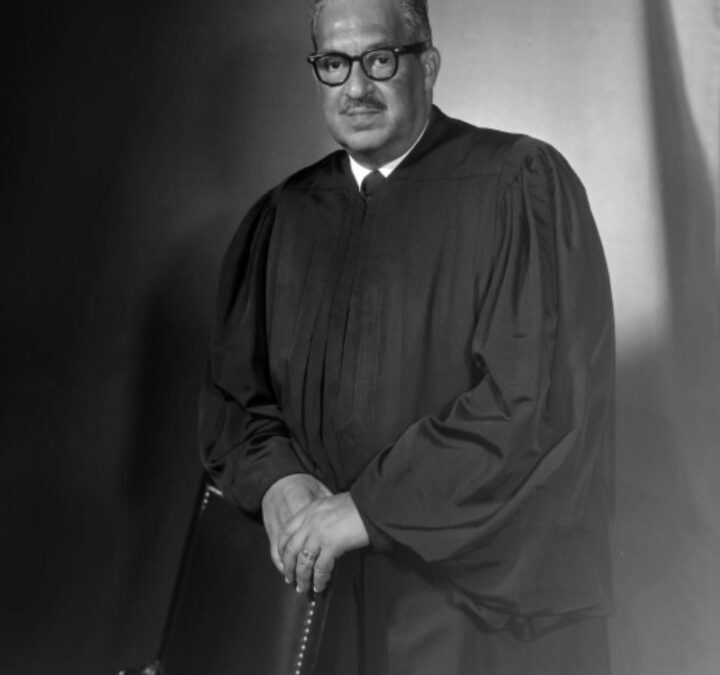Most known for his pivotal role in the Civil Rights Movement and his historic appointment as the first African American Supreme Court Justice, Thurgood Marshall’s legacy continues to inspire and shape the fight for equality and justice today. As a brilliant lawyer and advocate, Marshall’s strategic legal battles, including the landmark case Brown v. Board of Education, transformed the landscape of racial segregation in America. Through his unwavering commitment to upholding constitutional rights and challenging systemic racism, Marshall left an indelible mark on the pursuit of civil rights and justice for all.

Early Life and Education
Background and Family
Your early life and upbringing play a significant role in shaping your beliefs and aspirations. Thurgood Marshall, born on July 2, 1908, in Baltimore, Maryland, was no exception. Growing up in a middle-class African American family, Marshall was instilled with a strong sense of social justice and equality from a young age. His father, William Marshall, worked as a steward at an exclusive club, while his mother, Norma, was a kindergarten teacher. This supportive environment laid the foundation for Marshall’s future commitment to fighting for civil rights and justice.
Higher Education and Legal Inspiration
Any aspirations he had for a higher education were not without obstacles. Despite facing racial discrimination and financial challenges, Marshall persevered and enrolled at Lincoln University in Pennsylvania, a historically black college. It was here that he honed his skills in debate and public speaking, setting the stage for his future career in law. Inspired by his mentor, Charles Hamilton Houston, a prominent civil rights attorney and scholar, Marshall was driven to pursue a legal education and make a difference in the fight against racial injustice.
Plus, Marshall’s experiences of segregation and inequality fueled his passion for the law as a tool for social change. Determined to challenge the status quo, he went on to attend Howard University School of Law, where he further developed his legal acumen and commitment to serving marginalized communities.
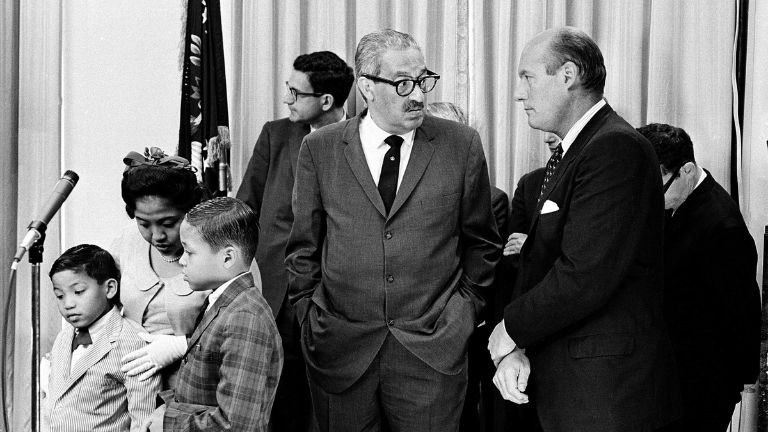
Legal Career Path
The Fight against Segregation
Fight against segregation was a cornerstone of Thurgood Marshall’s legal career. He tirelessly battled against discriminatory practices, leading the charge in pivotal cases that challenged segregation laws across the country.
Landmark litigation: Brown v. Board of Education
The landmark case of Brown v. Board of Education in 1954 was a watershed moment in the fight for civil rights. Thurgood Marshall’s brilliant legal strategy and impassioned arguments before the Supreme Court led to the unanimous decision that declared school segregation unconstitutional.
Understanding Landmark litigation: Brown v. Board of Education
Thurgood Marshall’s role as the lead attorney in Brown v. Board of Education was instrumental in dismantling the legal framework of segregation. The case marked a turning point in the civil rights movement and set a precedent for future challenges to discriminatory laws and practices.
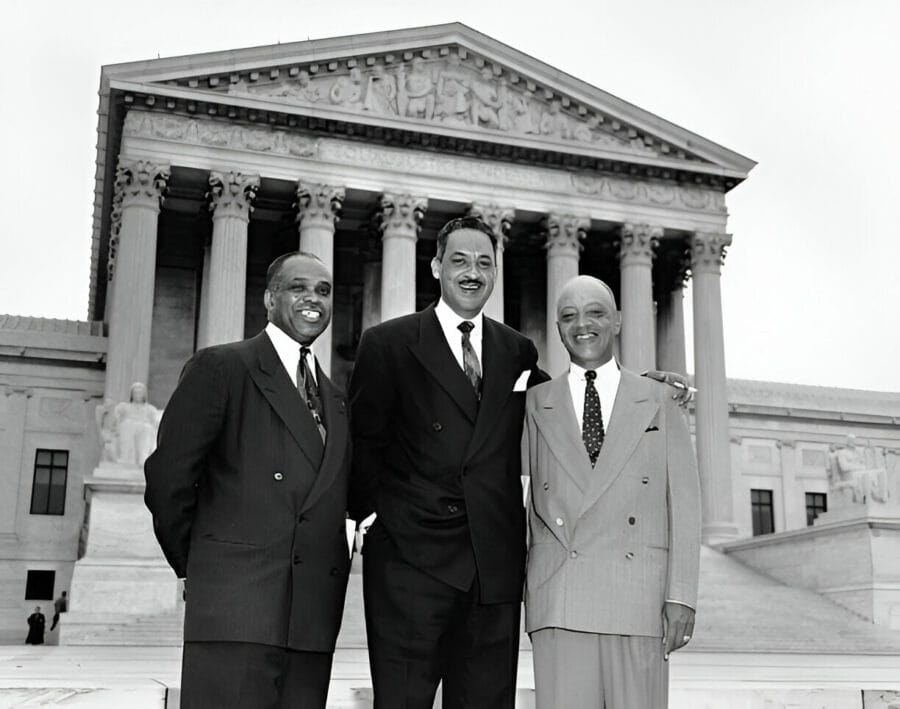
Supreme Court Tenure
Appointment and Confirmation
One of the most pivotal moments in Thurgood Marshall’s career was his appointment to the Supreme Court by President Lyndon B. Johnson in 1967. Marshall made history as the first African American to serve as a Supreme Court Justice, breaking through racial barriers and paving the way for future generations.
Significant Supreme Court Opinions
With a sharp legal mind and a deep commitment to justice, Thurgood Marshall left a lasting impact on the Supreme Court through his significant opinions during his tenure. His opinions in cases like Brown v. Board of Education, which ruled segregation in schools unconstitutional, and Roe v. Wade, which upheld the right to abortion, showcased Marshall’s dedication to advocating for civil rights and equality under the law.
The significance of Marshall’s opinions goes beyond just the outcomes of specific cases. They set a precedent for defending individual liberties, promoting equality, and challenging systemic injustices. Marshall’s legacy as a trailblazer for civil rights and justice lives on through the impact of his decisions on the highest court in the land.
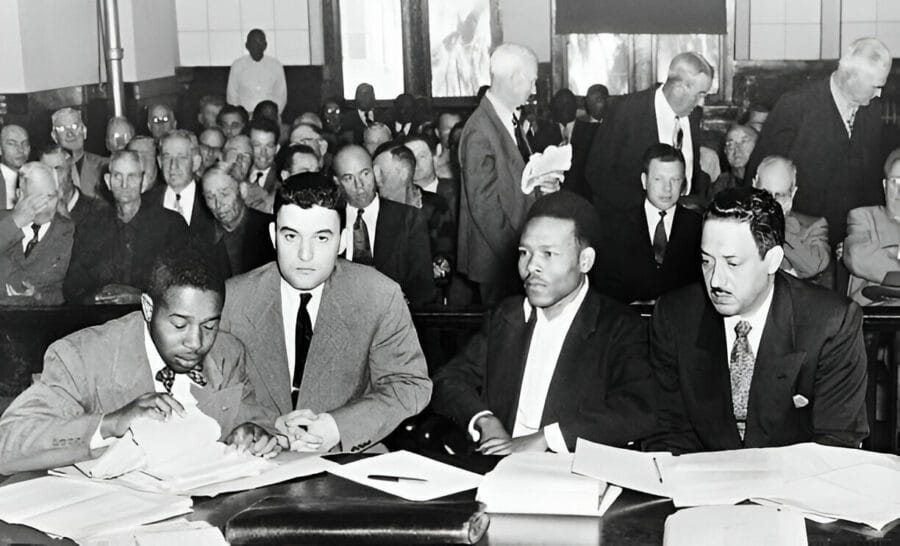
Legacy and Impact
Civil Rights and Legal Landscape
Keep Thurgood Marshall’s legacy alive by examining his monumental impact on civil rights and the legal landscape of the United States. As the first African American Supreme Court Justice, Marshall played a pivotal role in shaping the legal framework for equality and justice for all.
Personal Influence and Recognitions
Recognitions of Thurgood Marshall’s personal influence are vast and well-deserved. From his groundbreaking work as a civil rights attorney, where he successfully argued the landmark case of Brown v. Board of Education, to his tenure on the Supreme Court where he continued to champion equality, Marshall’s influence on American jurisprudence is undeniable.
Thurgood Marshall received numerous accolades during his lifetime, including the Presidential Medal of Freedom, which was awarded to him by President Bill Clinton in 1993. His impact on the legal and civil rights landscape continues to be celebrated and honored by scholars, activists, and legal professionals worldwide.
Conclusion
Hence, Thurgood Marshall’s legacy as a trailblazer for civil rights and justice is indisputable. His groundbreaking work as a lawyer, judge, and ultimately as the first African American Supreme Court Justice has left an enduring impact on the American legal system. Marshall’s tireless efforts to dismantle segregation and fight for equality have paved the way for future generations to continue the pursuit of a more just and equitable society. His fearless advocacy and commitment to upholding the principles of the Constitution serve as a timeless inspiration for all those who strive to achieve equality and justice for all.
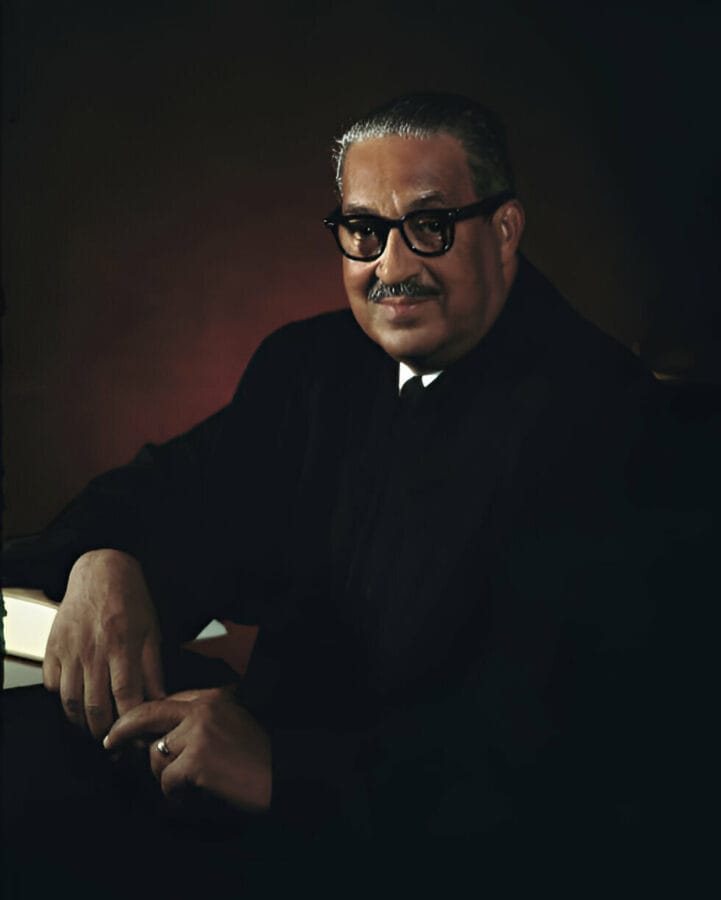
FAQ
Q: Who was Thurgood Marshall?
A: Thurgood Marshall was a prominent civil rights activist and the first African American to serve on the Supreme Court of the United States.
Q: What contributions did Thurgood Marshall make to civil rights and justice?
A: Thurgood Marshall was a trailblazer for civil rights and justice, known for his work as a lawyer fighting against racial segregation and discrimination, most notably in the landmark case Brown v. Board of Education.
Q: How did Thurgood Marshall’s legal career impact civil rights in America?
A: Thurgood Marshall’s legal career was pivotal in advancing civil rights in America. As a lawyer for the NAACP, he argued numerous cases before the Supreme Court that led to the dismantling of segregation and the protection of civil rights for all Americans.
Q: What was Thurgood Marshall’s significance as the first African American Supreme Court Justice?
A: Thurgood Marshall’s appointment as the first African American Supreme Court Justice in 1967 marked a significant milestone in the history of civil rights and justice in America. His tenure on the Court was marked by a steadfast commitment to upholding the principles of equality and justice for all.
Q: What is Thurgood Marshall’s lasting legacy in the fight for civil rights and justice?
A: Thurgood Marshall’s lasting legacy lies in his tireless advocacy for equality and justice, his groundbreaking legal victories, and his enduring impact on American society. He remains a symbol of courage and persistence in the ongoing struggle for civil rights and racial equality.
See also our article : Rosa Parks: An icon of the civil rights struggle

